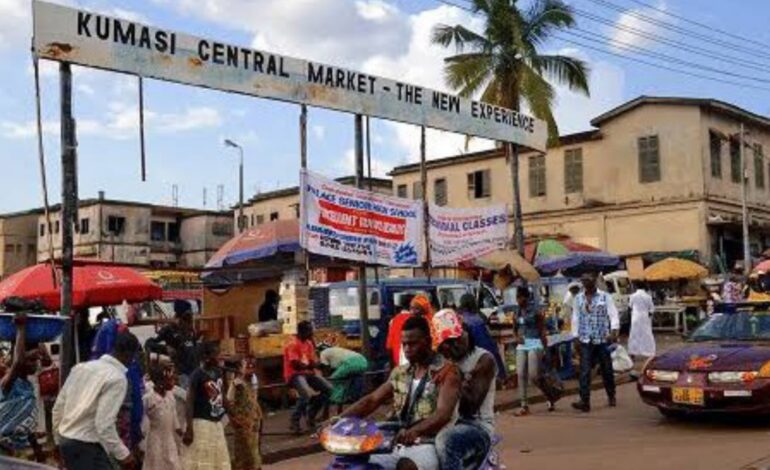The role of Nigeria in ECOWAS is something of an anomaly. Despite having by far the largest economy in the region with a GDP of $397.3 billion, accounting for more than half of total ECOWAS US$716.7 billion GDP, Nigeria has a poverty rate of over 40% i.e. the percentage of Nigerians living on less than $1 per day while only 10.5% of Ghanaians live in poverty
The Nigerian Union of Traders Association in Ghana, NUTAG, under the auspices of the National Association of Nigerian Traders, NANTS, has disclosed that aside from being subjected to all forms of frustrations by the government and people of Ghana, Nigerian traders over there are being tortured, intimidated and harassed.
Mr. Chukwuemeka Nnaji, NUTAG President and Dr. Ken Ukaoha, NANTS President, who spoke when the associations visited the Minister of Industry, Trade and Investment, Richard Adebayo, said this has been happening since 2007.
While appealing to the Federal Government to immediately evacuate Nigerian traders stranded in Ghana, they stated that this became necessary due to the frustrations and impoverishment of Nigerian traders following the closure of their shops by Ghanaian authorities.
“As traders, this is our mother ministry, and that is why we have come to meet with the minister and convey our final decision to be safely evacuated from Ghana,” Ukaoha told newsmen after their meeting with the minister in Abuja on Wednesday.
“Nigerian traders in Ghana are being tortured, intimidated, harassed, apart from being subjected to all manners of frustrations by the government and people of Ghana since 2007.
Also Read: FG Beats Deadline, Ratifies Nigeria’s Membership of AfCFTA
“Imagine our businesses being under lock and key for several months by Ghanaian authorities. Some traders who borrowed money from banks to transact businesses cannot pay back and some goods are getting expired.
“Having consciously reviewed our situation and counted the costs, we have solemnly resolved to leave Ghana in peace before it is too late.
“Particularly to avoid our members being compelled by nature into criminal activities or shamefully turning to beggars on the streets of Ghana as survival strategies that will demean Nigeria’s integrity among the comity of nations.
“We are therefore appealing to our government to make necessary arrangements to organise and embark on the immediate evacuation of our members and investments from Ghana,” he said.
Ukaoha maintained that the traders wanted the Federal Government to take necessary steps to liaise with relevant Ghanaian authorities to ensure that their goods and properties are safeguarded and moved back to Nigeria.
He expressed sadness that their shops still remained locked after many traders had complied with the laws in Ghana, although the laws contradict the provisions of the ECOWAS treaty and protocols.
Ukaoha, however, commended the Nigerian High Commission in Ghana, for its relentless efforts and dialogue with the Ghanaian government towards resolving the matter.
Also Read: Dangote Resumes Exportation Despite Border Closure
“There has been a litany of diplomatic dialogue and several engagements initiated by the government of Nigeria and had taken place on the same subject matter without any tangible solution,” he said.
Also speaking, Nnaji said: “As traders, we need to generate money to renew rents, pay school fees, settle bills, but we cannot because our shops have been locked up.
“We want to come back home because our children can no longer return to school and landlords are demanding rents when our shops have been locked.
“There are about 753 Nigerian traders who are ready to come home as the first batch of evacuees from Ghana,” he said.
According to him, the Ghanaian government is relying on the Ghana Investment Promotion Act 865 to demand that each Nigerian bring into Ghana a cash sum of US$1 million before setting up or being allowed to continue to do business in the retail sector. Virtually none of the Nigerian business people, most of them petty shopkeepers, can afford the investment they are required to make.
The Ghana Investment Promotion Act 865 certainly violates the protocols of the Economic Community of West African States (ECOWAS), which guarantee the free movement of people and goods within the region, as it blatantly discriminates against Nigerian traders. The closure of Nigerian land borders since August 2019 likewise impedes trade within ECOWAS.
Most immigration programmes that offer permanent residency or citizenship for investment require far less investment than Ghana is asking from Nigerian petty traders. An investment of $500,000 would fetch an American green card and just a bit more could get Spanish citizenship.
The role of Nigeria in ECOWAS is something of an anomaly. All regional trading blocs have a dominant economy, otherwise referred to as a “hegemon”, that drives the integration process. These dominant economies usually export capital i.e. their companies invest in establishing entreprises, which create employment in member states and also import labour from other members.
Despite having by far the largest economy in the region with a GDP of $397.3 billion, accounting for more than half of total ECOWAS US$716.7 billion GDP, Nigeria has a poverty rate of over 40% i.e. the percentage of Nigerians living on less than $1 per day while only 10.5% of Ghanaians live in poverty.
